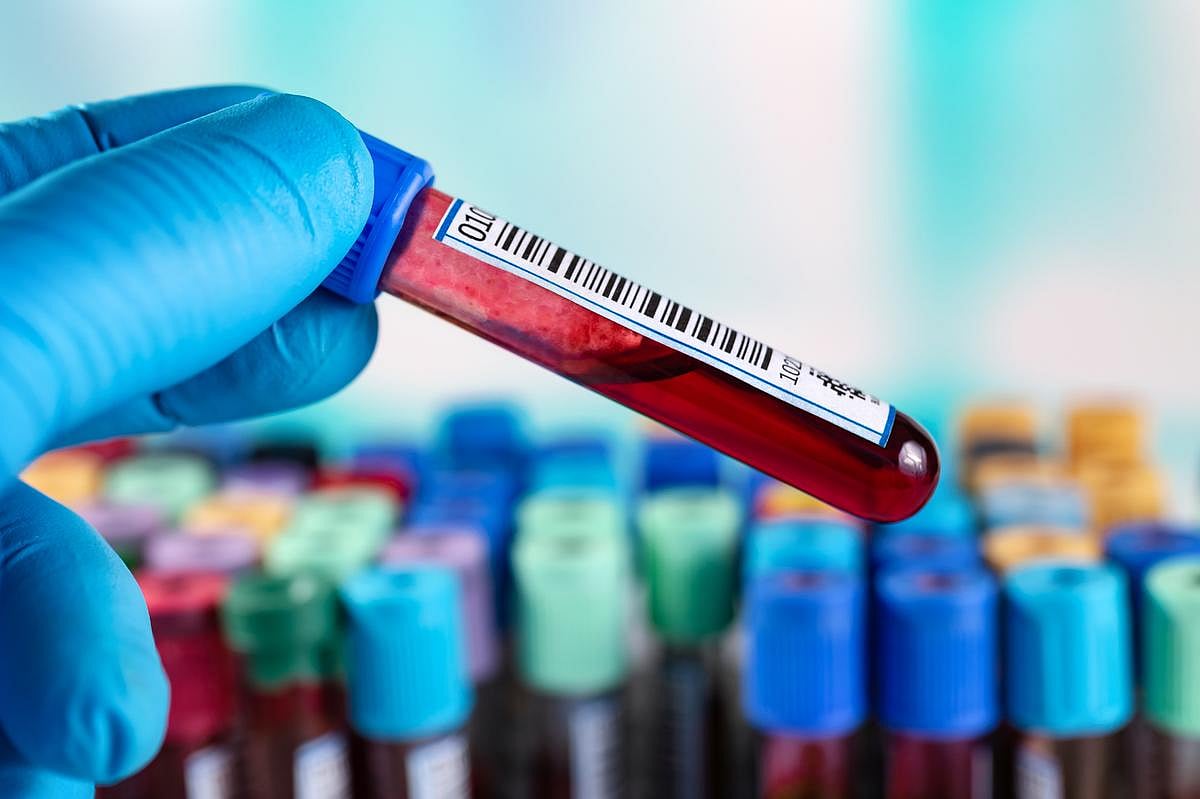Get Healthy!

- Dennis Thompson
- Posted October 21, 2024
Someday, Bedside Blood Test May Deliver Results in 1 Hour
A handheld pinprick blood test could someday deliver results in as little as an hour, a new study shows.
The portable device, which fits in the palm of a hand, uses sound waves to separate a tiny whole blood sample down into microscopic biomarkers, researchers reported Oct. 16 in the journal Science Advances.
The entire process takes less than 70 minutes, and should be able to deliver precise readings, researchers report.
“We’ve developed a technology that is very user-friendly, can be deployed in various settings and provides valuable diagnostic information in a short time frame,” said senior researcher Wyatt Shields, an assistant professor of chemical and biological engineering with the University of Colorado-Boulder.
This isn’t the first time someone’s claimed the creation of a pinprick blood test, and the researchers know it.
As far back as 2015, Theranos Inc. promised to detect hundreds of biomarkers with a single drop of blood. The company’s claims were proven false, and founder Elizabeth Holmes is now serving an 11-year sentence for fraud.
This new device works differently, and is based on systematic experiments and peer-reviewed research, its inventors claim.
“While what they claimed to do isn’t possible right now, a lot of researchers are hoping something similar will be possible one day,” said lead researcher Cooper Thome, a doctoral candidate in Shields’ lab. “This work could be a step toward that goal -- but one that is backed by science that anybody can access.”
Currently, blood tests involve one or more vials’ worth taken with a needle or syringe, and it can take hours or days to get results back from a lab, researchers said.
Rapid tests like COVID or pregnancy tests can provide a quick “yes” or “no” as to whether a single biomarker like a virus or protein is present in blood or urine, researchers said. However, these tests can’t detect the levels of these biomarkers.
This new technology uses functional negative acoustic contrast particles (FNACPs), which can be designed to capture different biomarkers inside a blood sample.
The device uses a syringe to collect a blood sample, which is mixed with these particles.
Sound waves then separate the particles, pushing them to the side of the collection chamber while flushing out the rest of the blood sample, researchers said.
Lasers then can be used to assess the amount of each biomarker present among the particles, which each bear a fluorescent tag.
“We’re basically using sound waves to manipulate particles to rapidly isolate them from a really small volume of fluid,” Thome said in a university news release. “It’s a whole new way of measuring blood biomarkers.”
More research is needed before the device is ready for action, but researchers imagine a day when a finger-prick of blood taken at a beside or in a mobile clinic could promptly provide important medical information.
“When you have viral infections where the disease spreads very quickly, or some acute respiratory disease or some inflammatory disease, being able to actually measure what’s happening really quickly and really accurately is crucial,” Shields said.
The test also could judge whether someone needs a booster shot, has specific allergies or carries proteins associated with certain cancers, researchers said.
More information
The Cleveland Clinic has more on blood tests.
SOURCE: University of Colorado-Boulder, news release, Oct. 17, 2024.







